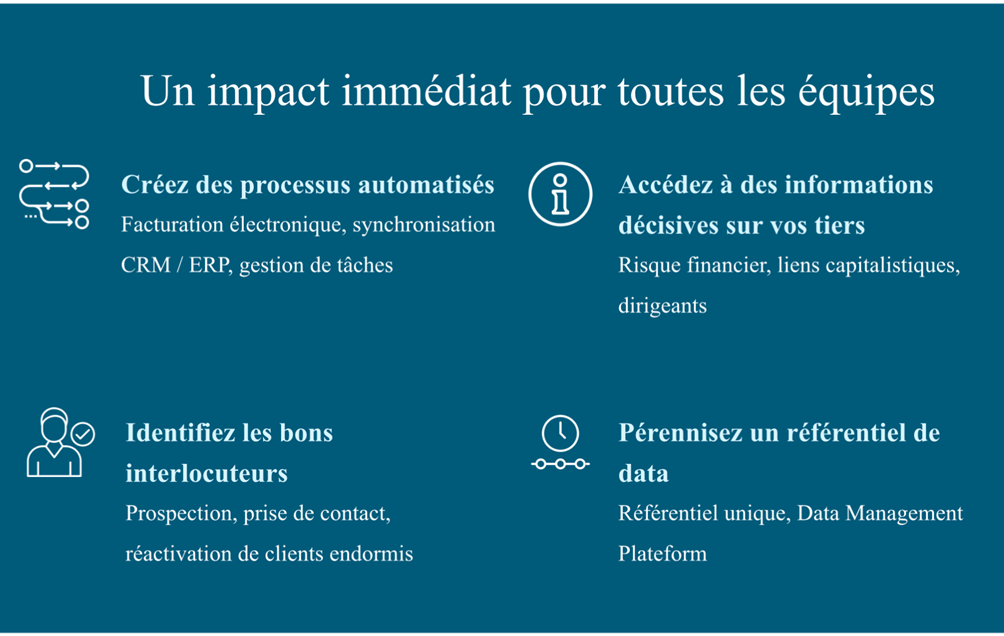Data quality, the "vehicle overhaul" that is your b2b database
Like your car, your b2b database needs to be regularly fuelled. This fuel is your data, and more specifically the data that will enable you to establish a relationship with your customer or prospect. Most of the time, this boils down to first and last name, e-mail address and job title. It's obviously essential to keep them up to date. If you don't do this, your database will lose performance and efficiency, with harmful consequences for your entire business.
For example: your finance department sends invoices to a generic e-mail address of a corporate customer who has fallen into arrears, but the sales representative has no information on his new internal contact despite his efforts.
Making your repository more reliable is therefore a sine qua non for the smooth running of your business.
4 visible effects on everyday life
Among the direct consequences of a poor-quality database, 4 are measurable and testify to the direct impact between data quality and business impact:
- loss of sales due to poor data quality is estimated at 20% of annual sales
- the loss of commercial data due to poor quality or absence of data is estimated by professionals at 30%.
- the loss of customers due to non-updated data - the famous "no forwarding address" disappearances, for example - represents between 7 and 10% of the customer portfolio.
- It is estimated that 10% of a salesperson's working day is lost to data entry.
Data cleaning to maintain your B2B database
For many companies, database revision involves setting up a dedicated team, either on a permanent basis, or for a specific period of time (a solution widely chosen by organizations). The first steps are often characterized by the establishment of rigid protocols for staff in the various departments.
On the other hand, other companies prefer to call on a specialized service provider like Ellisphere to outsource one-shot cleaning operations, or to set up a genuine data quality process, for example by installing software solutions in their CRM like ES Connect.
This type of process generally involves 4 main stages:
- Establish a single btob data repository
- Set up an automated process
- Optimize the dissemination of the right information to teams using the right tools
- Identify the right contacts for your services
Benefits shared by marketing, sales, purchasing and finance departments
In the end, structuring and requalifying your B2B database will have a positive impact on all your company's departments:
A. Obtain relevant information on customer or prospect accounts
- Financial risk assessment
- Capital links
- Executive movements or managerial information
- Financial data...
B. Maintaining the standard
- A single B2B repository for all teams
- A data management process within a single platform
- An internal policy for sensitive btob data
C. Enable the creation of automated processes
- Synchronization with your CRM/ERP or other tools
- Simplified task management
- Time-saving data entry for teams
- Facilitates the introduction of electronic invoicing, which will be compulsory from July 1, 2024 for all companies subject to VAT.
D. Having the right contacts in your single repository
- Easy contact
- Reactivating dormant customers
- Managing lost customers
- Easy prospecting




